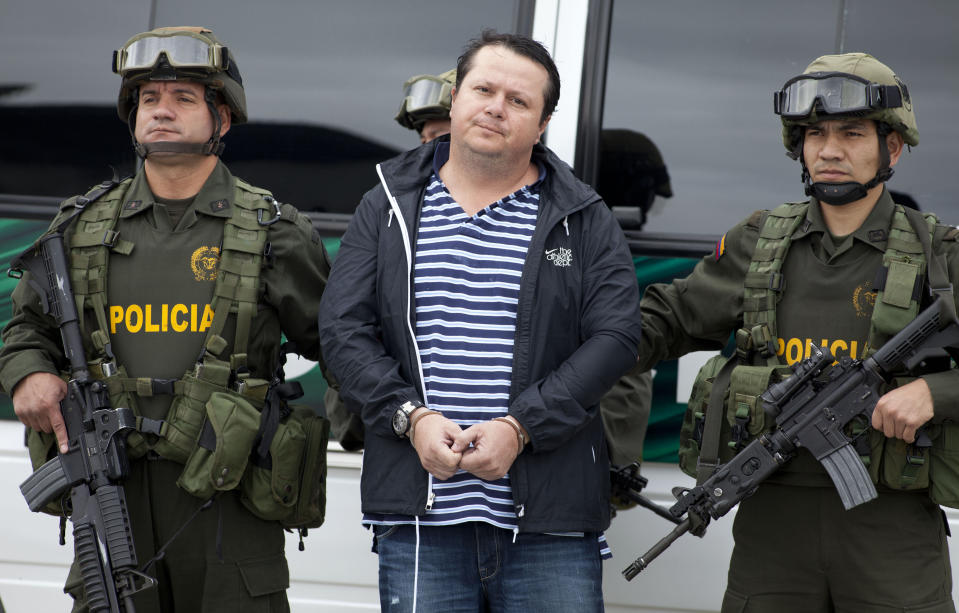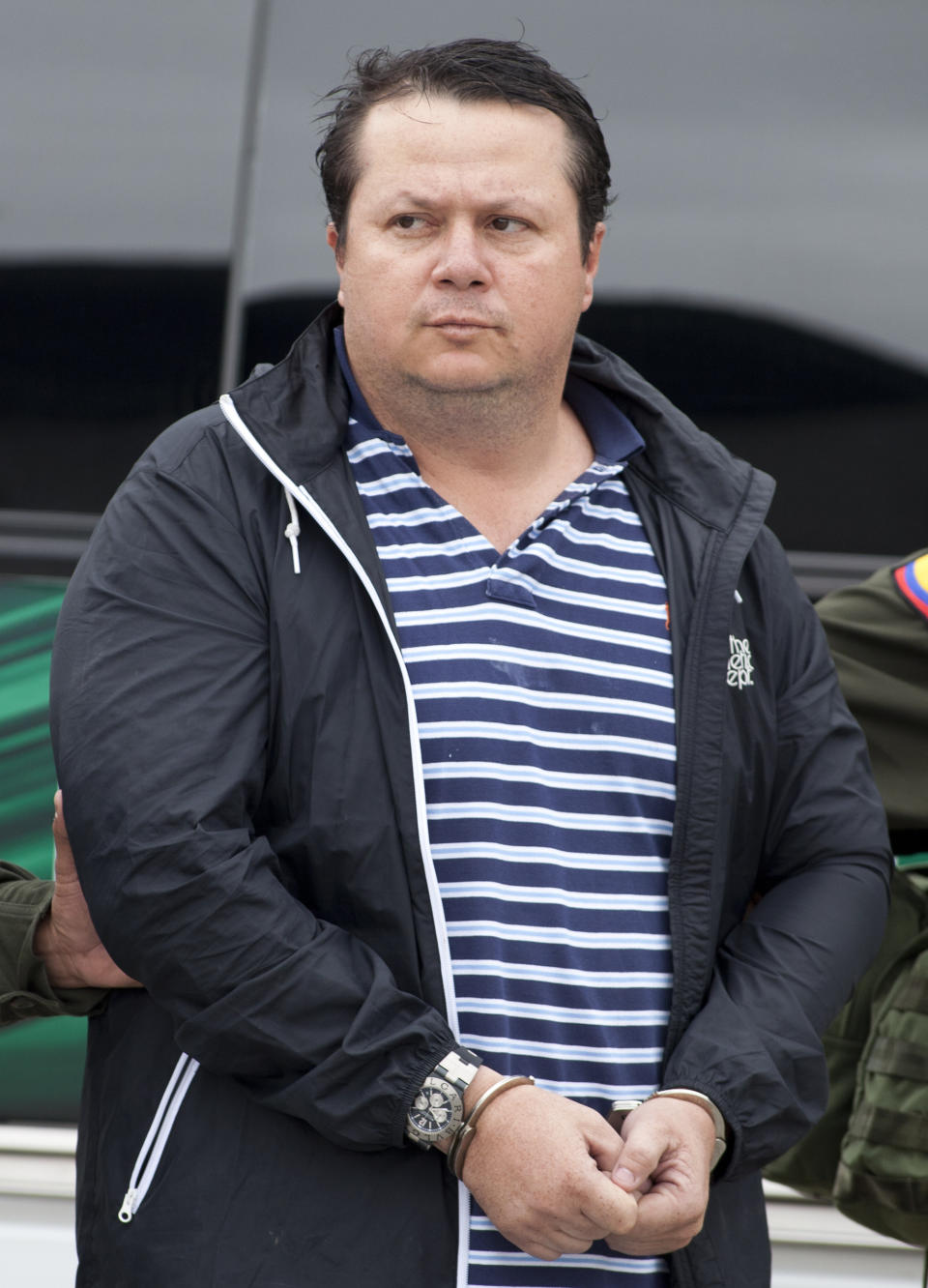Suspect in slaying of singer arrives in Guatemala
GUATEMALA CITY (AP) — A Costa Rican man who authorities say may have links to Mexico's powerful Sinaloa drug cartel arrived Wednesday in Guatemala to face charges in last year's fatal shooting of Argentine folk singer Facundo Cabral.
Fernando Alejandro Jimenez Gonzalez landed before dawn in Guatemala City and was taken for questioning to National Police headquarters in the capital, said Minister of Government Mauricio Lopez Bonilla.
"I'm innocent," Jimenez told reporters as he got out of the airplane. He added that he ignored why he had been detained but that "I'm here to find out."
After questioning, Jimenez was taken to a maximum security prison in the capital where he will be under 24-hour surveillance, said prisons spokesman Rudy Esquivel.
On Tuesday, Costa Rican authorities asked Colombia to halt Jimenez's deportation because the suspect risked being killed in Guatemala and Costa Rica does not accept the application of the death penalty to its citizens.
But Guatemalan Interior Minister Mauricio Lopez Bonilla later said his country had sent Costa Rica a diplomatic note guaranteeing that the death penalty would not be applied, allowing the expulsion to proceed.
Jimenez, 38, was arrested Saturday by counternarcotics police in a speedboat that Colombia's navy had tracked from Panama into Colombian territorial waters, said Colombia's national police chief, Gen. Oscar Naranjo.
Costa Rican authorities have said Jimenez is wanted at home on suspicion of money laundering and drug trafficking, but they asked Colombia to send him directly to Guatemala for the Cabral case.
The Colombian police said in a communique that according to information gathered by Costa Rican security agencies that Jimenez could be a link between the Sinaloa cartel headed by Mexican drug lord Joaquin "El Chapo" Guzman and suspected Colombian traffickers, brothers Luis Enrique and Javier Antonio Calle Serna.
Naranjo said Colombian police believe Jimenez arranged his attempt to enter Colombia on Saturday with the help of the brothers.
As recently as three years ago, Jimenez had a fruit and vegetable business in Alajuela, 14 miles (23 kilometers) from Costa Rica's capital. Authorities began investigating him after he began buying mansions and luxury cars.
Costa Rican officials allege Jimenez is head of a criminal group that launders money in Central America, and they believe Cabral was the unintended victim of an attack ordered by Jimenez on another man in the same car related to a rift over stolen drug money. Drug cartels, some from Mexico, have established themselves in Central America and grow and ship drugs in the region.
Cabral, 74, was shot to death July 9 after giving a concert in Quetzaltenango, a Guatemalan city 200 kilometers (120 miles) west of the capital, Guatemala City.
Authorities believe the attack was aimed at Cabral's promoter, Nicaraguan businessman Henry Farina, who was driving the singer to the airport. Farina was wounded when their car was ambushed by assailants in three cars.
Guatemalan officials have said the killers appeared to have had Farina under surveillance for about a week before the attack and didn't know Cabral was in the vehicle.
Surveillance footage from security cameras at the hotel where Cabral was staying shows Jimenez and several of the suspects were there before the attack.
Four of the gunmen were arrested last year in Guatemala, but Jimenez had remained a fugitive.
Cabral rose to fame in the early 1970s as one of a generation of singers who mixed political protest with literary lyrics. He created deep bonds with an audience struggling through an era of revolution and repression across Latin America.
___
Associated Press writers Cesar Barroso in San Jose, Costa Rica, and Cesar Garcia in Bogota, Colombia, contributed to this report.



